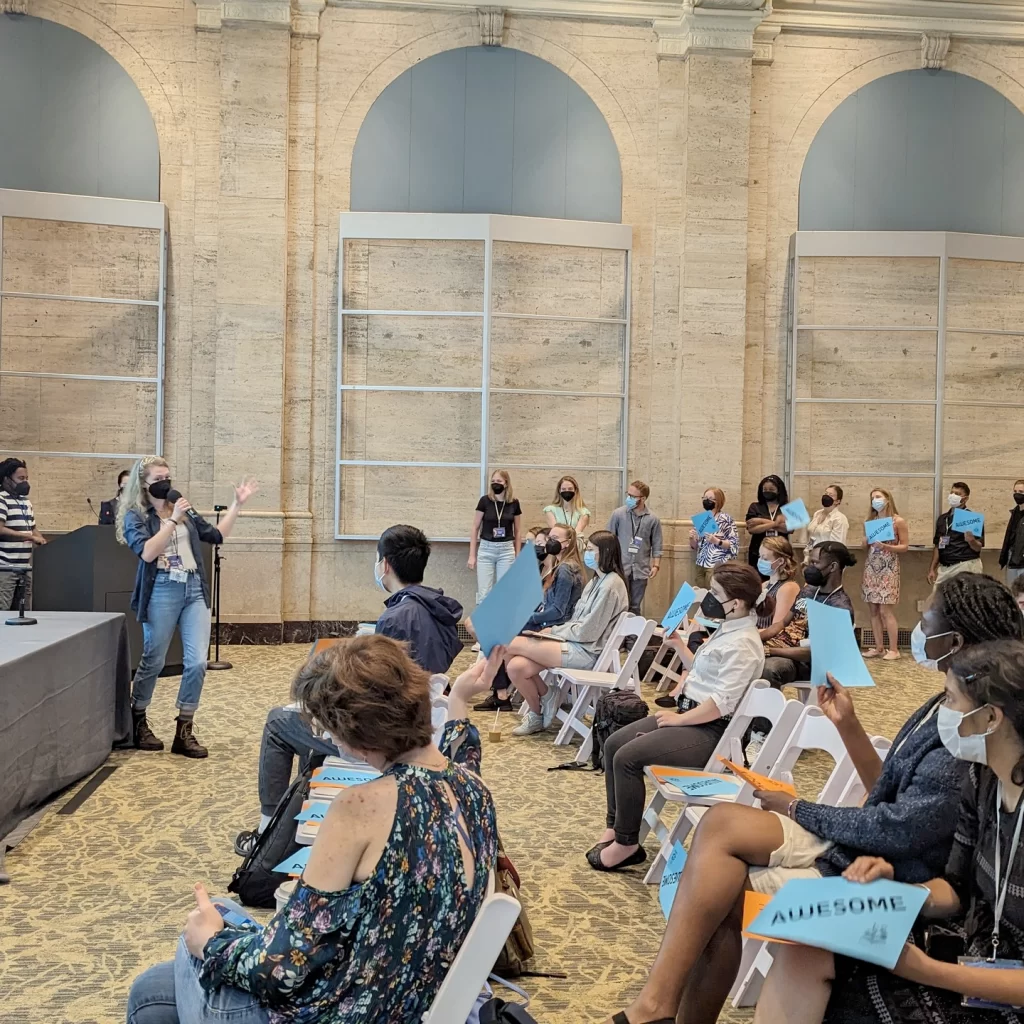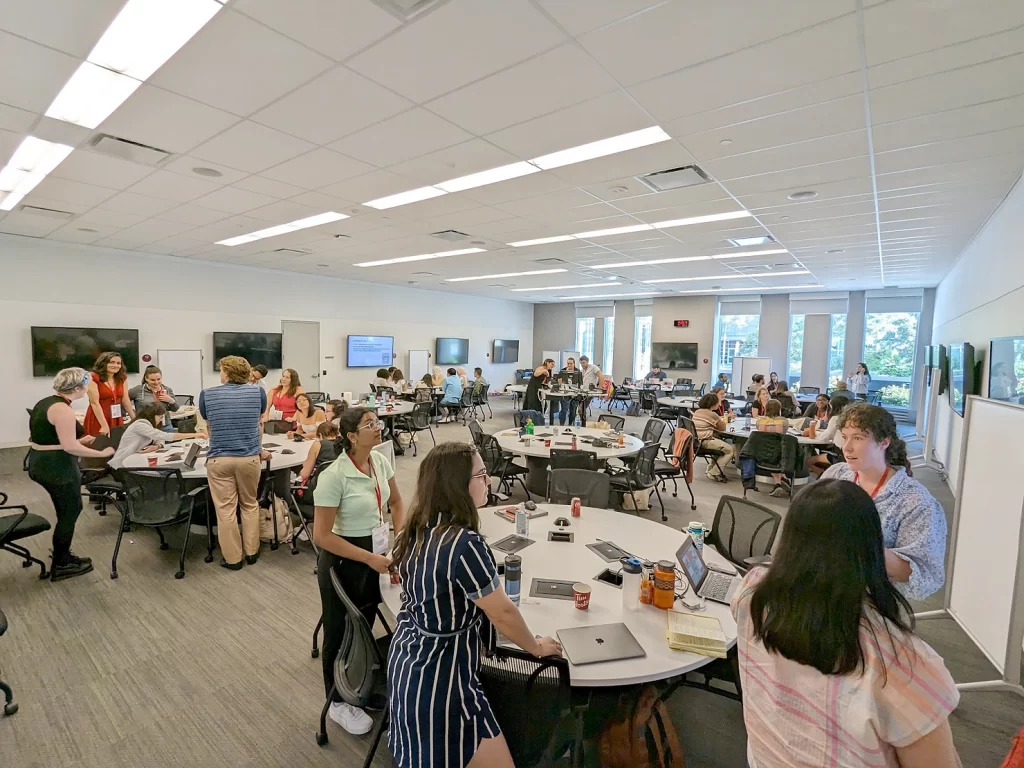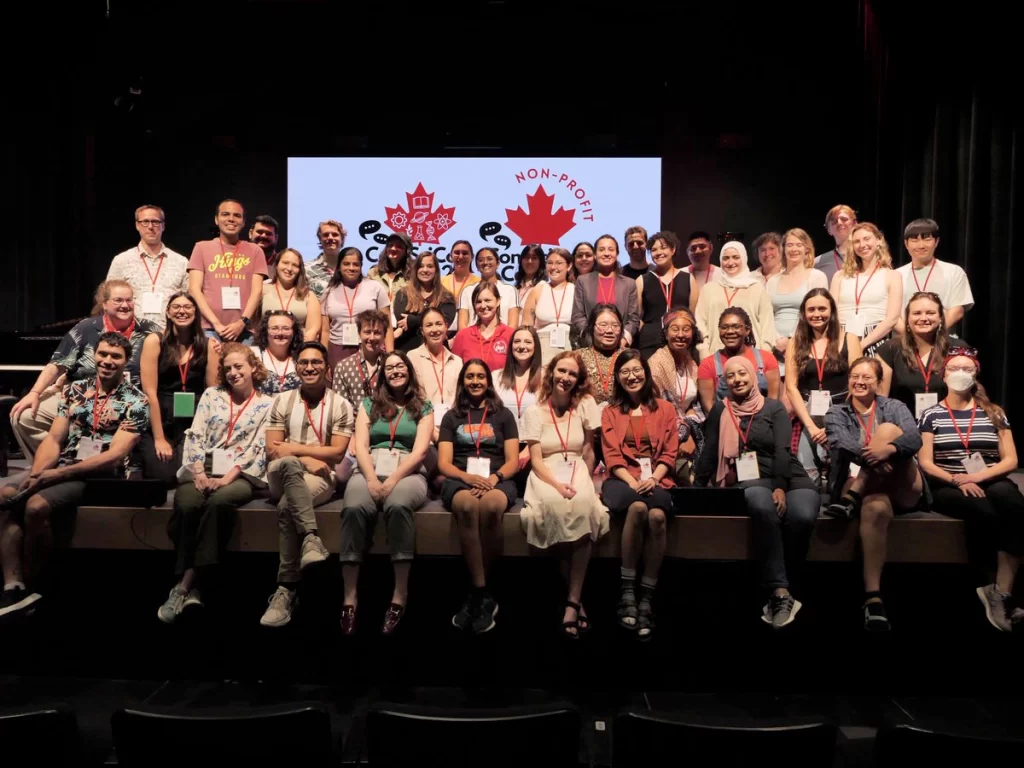SciCommBites’ Kirsten and Kay Talk about ComSciCon/CAN 2023!
Two members of our admin team, Kirsten and Kay, attended the flagship American and Canadian ComSciCons last year. Here’s what they had to say.
ComSciCon is a series of scicomm workshops for early career science communicators and graduate students. The flagship ComSciCon conference was launched in the U.S. in 2013 by graduate students from Harvard and MIT and has since expanded across the country and around the world, offering numerous local workshops. In 2019, the inaugural ComSciConCAN brought the workshop to Canadian science communicators.
The workshops are mainly coordinated by past attendees – many of whom are graduate students – and are best suited for people with some scicomm experience. Participants attend interactive seminars, hear in depth explanations from panelists on relevant topics, and have the opportunity to share their own work and grow as science communicators. Many attendees have successfully published pieces they’ve developed through this conference. The 2024 flagship event will be held in Boston, MA, from July 24–27. In July 2023, SciCommBites admins Kirsten Giesbrecht and Kay McCallum respectively went to ComSciCon and ComSciConCAN. We sat down with them to prepare us for the upcoming conferences!

The Questions
- Why did you go to ComSciCon?
- KG: A few years ago, I attended a local ComSciCon chapter workshop, ComSciCon Triangle, and learned so much. This was my introduction to what science communication is and what careers in science communication could look like. I learned about the flagship workshop through the local chapter. It sounded like an amazing opportunity to improve my science communication skills and connect with other graduate students from across the country who were excited about science communication.
- KM: I had pretty similar reasons to Kirsten – I’m always interested in more opportunities to grow as a science communicator. I’d heard about the CSC flagship in Boston, but when I discovered that there was a Canadian conference that would be happening in Ontario, I jumped at the chance to go! The Canadian scicomm community is growing, so it’s great to be able to connect with science communicators in my home country and learn about the incredible work that’s being done up here.
- What was your favorite part about ComSciCon?
- KG: Being surrounded by other graduate students and professional science communicators who are passionate about science communication was my highlight. As a STEM graduate student, I’m not usually around so many other graduate students who are so excited about science communication and want to talk about all areas of science all day. It was also encouraging to learn from professionals in the field, showing that a career in science communication is possible. It felt like the best summer camp ever! I was constantly amazed and impressed with my peers and inspired by the panelists.
- KM: I really loved hearing about the variety of science communication that people are creating – from data visualization, to drag, to stand-up comedy, and more! Our keynote speaker, Alex Hall, shared his work in scicomm by way of oral history: what memories do people have of the coldest winter they’ve ever faced, and how do these stories complement the historic meteorological record? Science communication can be funny, personal, flashy, intimate, and can happen in unexpected places. The field is so open, and there’s opportunity to communicate science any way you’d like.

- What can readers expect from ComSciCon?
- KG: It’s a three-day workshop run completely by graduate students in Boston. There are workshops, panels, and pop talks. Before the conference you create a science communication piece for the Create-a-Thon and peer edit pieces, so at the workshop you meet with panelists and peers to go over the pieces. The workshop is completely funded for attendees and we stayed in local college dorms while we were there, which ended up being really fun since we were all staying together!
- KM: I’ll echo Kirsten and emphasize that there’s a lot of interactivity for attendees. In addition to making a piece for the Create-A-Thon and giving my own pop talk, I participated in the Show ‘N Tell. This is an optional activity where you can present a scicomm project you’ve done (or have in progress). I brought an at-home chemistry lab I’d designed and got my fellow attendees to try it out. It was like a combination poster session and science fair, and I can’t recommend signing up for it enough! Come prepared and ready to share, and you’ll get so much out of your experience.

How to Learn More
Interested in attending or getting involved in ComSciCon? There are local chapter workshops across the country, and the applications for flagship workshops are typically due in March. Local workshops happen throughout the year, so make sure to follow ComSciCon on social media to follow the network and find one near you! You can find ComSciCon on X and Instagram at @comscicon, and ComSciConCAN in the same places at @comsciconcan.
Edited by Niveen Abi Ghannem
All photos used with permission of ComSciCon and ComSciConCAN organisers.


One Comment
Comments are closed.